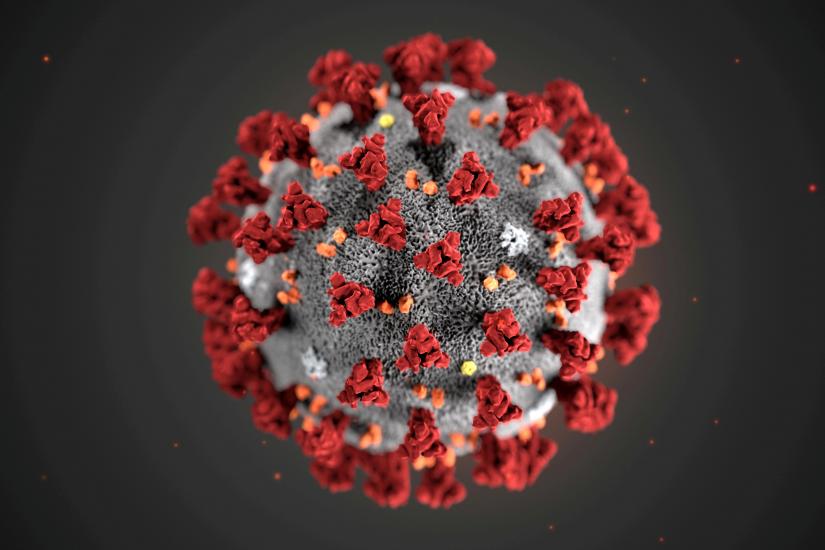 The Institute of Epidemiology, Disease Control and Research (IEDCR) has said three Bangladeshis have tested positive for coronavirus in the country.
The Institute of Epidemiology, Disease Control and Research (IEDCR) has said three Bangladeshis have tested positive for coronavirus in the country.
IEDCR Director Meerjady Sabrina Flora made the disclosure during a media briefing on Sunday (Mar 8).
She said of them, two recently returned from Italy.
The affected people are aged between 20 and 35.
The IEDCR director said one person was already affected among the two who came back from Italy. Both of them had come from different cities in Italy.
“Both of them are from separate families. After they went back to their homes, they called our hotlines to get tested. Later, they tested positive.
“After that, we started testing people who came into contact with the two returnees and that is how we found the third affected coronavirus patient. Three others who were in their contact are in quarantine at the moment,” Meerjady said.

Meerjady also said there is no need to panic right now and the government hopes that it will be under control.
It is not the time to say that the virus would spread across the country and there is no need to shut down schools and colleges at the moment.
She asked people to avoid public gatherings and suggested to mostly stay at home, and to follow the precautionary measures which have been given by WHO earlier.
 Earlier on Mar 4, in a bid to control the spread of Coronavirus (COVID-19), Bangladesh restricted entry of people from four countries -- Italy, South Korea, Japan, and Kuwait -- without the virus-free medical certificates.
Earlier on Mar 4, in a bid to control the spread of Coronavirus (COVID-19), Bangladesh restricted entry of people from four countries -- Italy, South Korea, Japan, and Kuwait -- without the virus-free medical certificates.
A total of 106,487 people have been affected by coronavirus across the world while 3,600 people have died, according to worldometers.info.
Since Jan 21, a total of 479,008 incoming passengers were screened at land, sea, and airports across the Bangladesh, but none of them were found infected.
Virus spreading
The outbreak began in Wuhan, a major transportation hub as well as central China’s main industrial and commercial centre, and has now spread to other major population centres including Beijing, Shanghai and Hong Kong.
There is no known cure for the virus. Symptoms include fever, difficulty in breathing and cough, similar to many other respiratory illnesses, and can cause pneumonia.
 Chinese authorities are still investigating the origins of the virus, though they confirmed the outbreak began at a market in Wuhan with illegal wildlife transactions and that it can spread from one person to another via respiratory transmission. Among confirmed patients are 15 medical workers, further adding to worries about a possible global pandemic.
Chinese authorities are still investigating the origins of the virus, though they confirmed the outbreak began at a market in Wuhan with illegal wildlife transactions and that it can spread from one person to another via respiratory transmission. Among confirmed patients are 15 medical workers, further adding to worries about a possible global pandemic.
Airports globally stepped up screening passengers from China, and the European Centre for Disease Control and Prevention (ECDC) said in a risk assessment that further global spread of the virus was likely.
Symptoms
People affected by the novel coronavirus usually have fever, cough, shortness of breath and breathing difficulties, pneumonia, and kidney failure.
How to protect oneself from getting infected
WHO's standard recommendations for the general public to reduce exposure to and transmission of a range of illnesses are as follows, which include hand and respiratory hygiene, and safe food practices:
● Cleaning hands frequently by using alcohol-based hand rub or soap and water
● When coughing and sneezing, one has to cover one's mouth and nose with flexed elbow or tissue. After the use of tissue, it has to be thrown away immediately into a closed bin and one has to wash hands
● Avoiding close contact with anyone who has fever and cough
● If a person has fever, cough and breathing difficulty, he/she has to seek medical care as soon as possible and share previous travel history with the health care provider
● When visiting markets in areas currently experiencing cases of novel coronavirus, one has to avoid direct unprotected contact with live animals and surfaces in contact with animals
● The consumption of raw or undercooked animal products should be avoided. Raw meat, milk or animal organs should be handled with care, to avoid cross-contamination with uncooked foods, as per good food safety practices.


